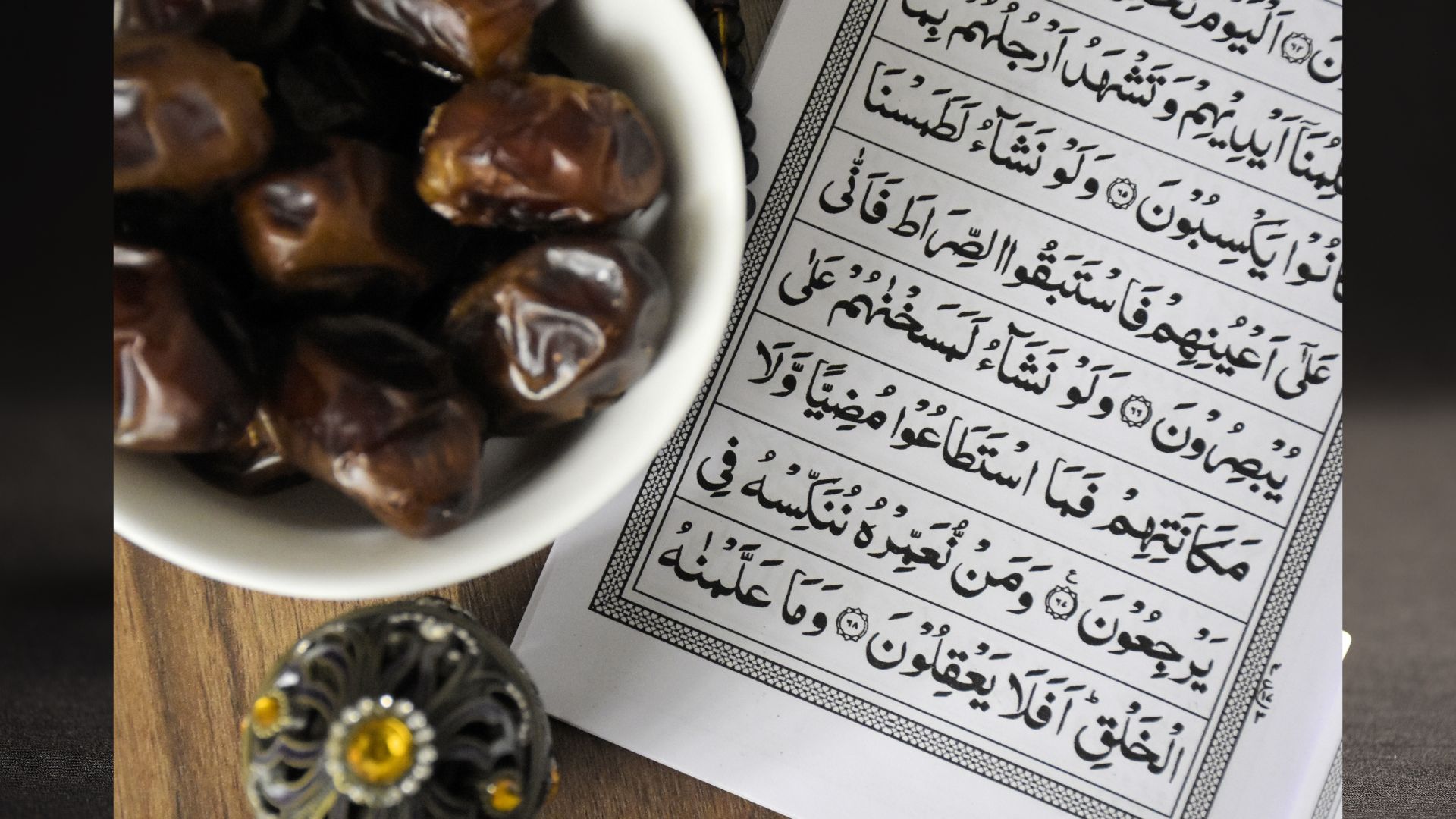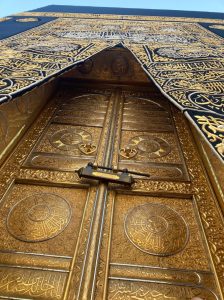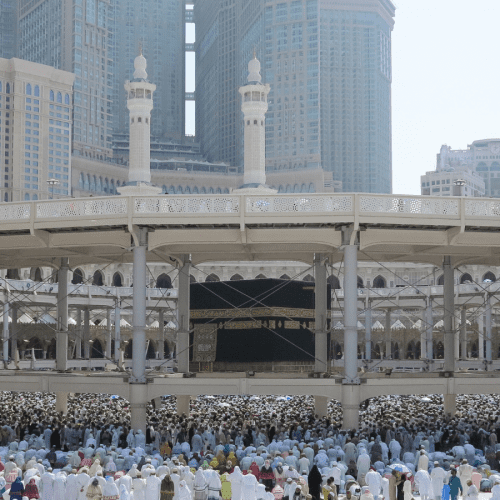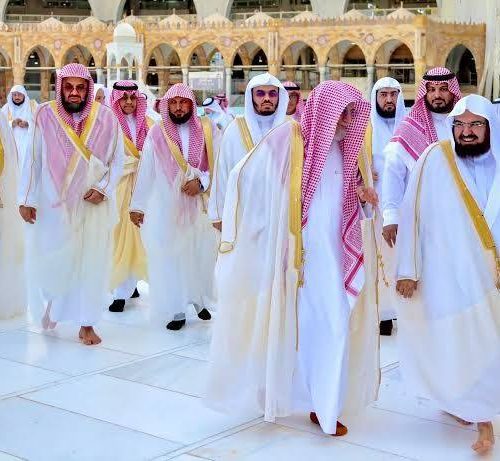What is obligatory regarding the texts of the Qur’an and Sunnah in relation to Allah’s names and attributes.
All praise is due to Allah; we praise Him; seek His help and ask His forgiveness. We seek refuge in Allah from the evil of our souls and our deeds, for whomever Allah has guided, none can lead astray, and whomever Allah has allowed to go astray, none can guide. I bear witness that there is no God worthy of worship besides Allah, who is alone without a partner, and I bear witness that Muhammad is His slave and Messenger.
﷽
Rule Number Two
There are four sub-categories concerning Allah’s Names:
1. All of Allah’s Names are Beautiful
This is because all of them contain the perfect attributes of Allah (ﷻ), free from any deficiency in any respect.
”And (all) the Most Beautiful Names belong to Allâh.” [Surah al-A’raaf : 180]
Wa lillāhi al-asmā’ul-ḥusnā.
وَلِلَّهِ ٱلۡأَسۡمَآءُ ٱلۡحُسۡنَىٰ (١٨٠)
For example, from among Allah’s beautiful names is ar-Rahman, which indicates the great attribute of extensive mercy. Conversely on the basis of this principle it is known that ad-Dahr (Time) is not one of Allah’s names because it does not contain a meaning of infinite beauty. As for the Prophet’s statement,
“Do not curse time, for indeed Allah is time.” [Sahih Muslim, vol. 4, p. 1217, no. 5580 narrated by Abu Hurayrah]
It means that He is the owner of time who can do whatever He wishes in it and with it as is proven by another statement from Allah,
“The affair is in My hand, I flip the night and the day.” [Sahih Al-Bukhari, vol. 9, 9. 433, no. 583. and Sahih Muslim vol. 4, p. 1257, no. 5823 narrated by Abu Hurayrah]
2. Allah’s Beautiful Names are not limited to any specific number.
This is indicated by the following well-known supplication of the Prophet (ﷺ ):
“O Allah, I ask you by every name belonging to You with which You named Yourself, or You revealed in Your scripture, or You taught one of Your creatures, or You kept with Yourself exclusively in the hidden knowledge.” [Musnad Ahmad, vol. 1, p. 394, 452 and authenticated in Silsilah al-Ahadeeth as-Saheehah, vol. 1, no.199]
What Allah has kept exclusively to Himself in the knowledge of the unseen cannot be limited or known.
As regards the other well-known prophetic statement which appears to limit the total number of Allah’s names:
“Indeed Allah has ninety-nine names. Whoever counts them will enter paradise.” [Sahih Al-Bukhari, vol. 9, p. 363, no. 489. and Sahih Muslim, vol. 4, p. 1409, no. 6475 narrated by Abu Hurayrah]
This is similar to saying; “I have 100 dirhams which I have prepared for charity”: it does not contradict the fact that I have more dirhams prepared for something else.
3. Allah’s names are not to be decided upon by reason but by revelation
They are fixed (tawqeefee) by what has come in the Shari‘ah and should neither be added to nor reduced, because the human mind is not able to grasp what names are due to Allah (ﷻ). Consequently, limiting the names to what has been revealed is obligatory, because naming Him by what He has not named himself, or denying what He has named Himself, is a sin regarding Allah’s right. Thus it is obligatory that proper etiquette be followed in this regard.
4. Every one of Allah’s names refers to Allah’s essence, to the attribute it contains and to the effect resulting from it if it is transitive.
Faith in Allah’s names is not complete without affirming all of this. For example, regarding His intransitive name “the Great” (al-‘Azeem), faith in it is incomplete without belief in it as referring to His essence and the attribute of “greatness” (al-‘Azamah) it contains. Regarding the transitive name “the Most Merciful” (ar Rahman), complete faith in it depends on affirming it as one of Allah’s names, its containing the attribute of “mercy” (ar-Rahmah) and its effect which is that Allah (ﷻ) shows mercy to whomever He wishes.
The Bottom Line
Allah’s Names are Perfect: They reflect His flawless attributes, like ar-Rahman for mercy, while unsuitable terms like ad-Dahr are not His names.
Not Limited: Allah’s names are infinite; some are known only to Him.
Based on Revelation: Names are derived strictly from divine revelation, not human reasoning.
Comprehensive: Each name signifies Allah’s essence, its attribute, and its effects.
Faith in Allah’s names requires affirming all aspects correctly.
Bibliography and History of the sources
ابن قيم الجوزية | Lumu’at-ul-I’tiqaad | The Radiance of Faith by Ibn Qudamah al-Maqdisi
1373: Dated handwritten manuscript by ‘Umar ibn Ghaazee ‘Alee al-Maqdisee al-Hambalee.
1919: Published by at-Taraqqee Press, Damascus.
1972: Shaykh Al-‘Uthaymeen’s commentary was published.
1983: Introduced in first year high school curriculum of the religious institutes (al-Ma‘aahid al- ‘Ilmiyyah) in Saudi Arabia.
1995: Third edition of Al-‘Uthaymeen’s commentary edited by Ashraf ibn ‘Abdil-Maqsood is published and used ‘Aqeedah and Manhaj classes at the Abu Hurayrah Mosque in Sharjah, UAE.
2002: Radiance of Faith Leading to The Path of Guidance – a commentary by Dr. Abu Ameenah Bilal Philips, used in ‘Aqeedah II course of the BA in Islamic Studies program, Preston University, Ajman, UAE.










 Allah’s Names and Attributes: Main Rules 3/4
Allah’s Names and Attributes: Main Rules 3/4 Allah’s Names and Attributes: Main Rules 1/4
Allah’s Names and Attributes: Main Rules 1/4









